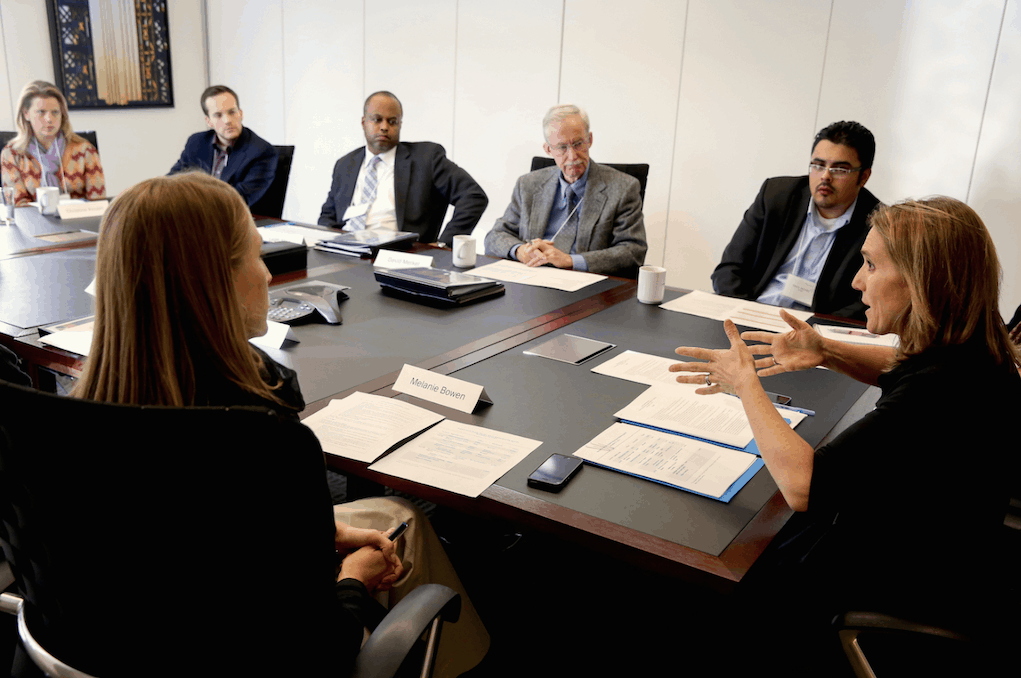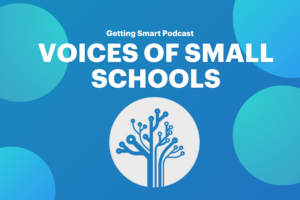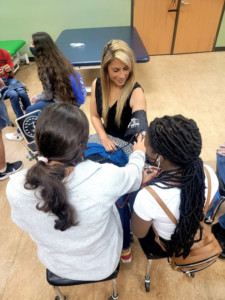Good Governance: The Foundation for Good Schools

What’s the number one problem in the charter sector? David Frank thinks it’s the lack of board governance capacity. “Strong boards would ameliorate many of the problems of practice that charter schools have, from those that are struggling to our high performing charter schools,” said Frank.
As the Executive Director of the New York State Education Department (NYSED) Charter School Office in Albany, David Frank (@dfranknyc) works with senior leadership to decide which charter schools get approval to open and which schools earn the right to stay open.
Compared to other intervention strategies, Frank sees governance as high leverage. And many boards “don’t do a good job of knowing the standards by which their authorizer is evaluating them or their schools, let alone using these transparent standards to evaluate the school leader they have chosen.”
“For struggling schools trying to improve, and even good schools on their way to becoming great schools, boards and the oversight our most successful boards engage in, make a big difference,” said Frank.
“Many groups like Building Excellent Schools are developing strong pipelines of community-based school leaders,” said Frank, “but thinking just as deeply about fostering strong boards, like Building Excellent Schools does, is not as common.”
“In the past, if the school leader was fantastic and the board less so, authorizers may have approved the application. But after 20 years of charter schools operating here in New York, the data shows that applicant groups without strong boards just don’t get results for children. We know that this is a key piece of the puzzle and so if the board is not strong, doesn’t know about the underlying theory of action of the school, doesn’t have a concrete plan to evaluate the school leader, doesn’t understand the role of governance versus management, and doesn’t know the law, we reject the application,” said Frank. “We have been much more direct with boards up front,” he added.
The Hard Work of Governance
“Great charter schools tend to have good boards, and low-performing charter schools tend to have weak boards,” said Carrie Irvin, CEO and co-founder of nonprofit Charter Board Partners, a good governance partner of NYSED.
“Boards hold in their hands the ability—the responsibility—to hold schools accountable for academic outcomes for students, and for being well run organizations financially and operationally,” Irvin added.
Nadine Augusta who leads diversity, inclusion and corporate social responsibility at Depository Trust Clearing Corporation and chairs the Brooklyn LAB board Nominating Committee states: “Public schools are accountable to the public. School boards must drive meaningful, results-driven impact for all young people.
Brooklyn LAB (featured here) is a NYSED authorized school that has benefited from a talented, diverse, and representative board.
A second Brooklyn LAB Board member, Tokumbo Shobowale, adds, “Board service requires a deep conviction that local schools need to do better, and a belief that serving all students at exceptionally high levels, in a manner that meets individual needs, is a non-negotiable. Board service requires tenacity when protectors of the status quo push back.”
“The most important thing a board does is evaluate the school leader through an ongoing and transparent process” added David Frank. However, he sees many boards not taking the evaluative role seriously. He knows there are many bad reasons that board members give, “board members may be busy with full-time jobs, they may be retirees who don’t want to rock the boat, they might feel that they need to defer to the instructional leaders’ expertise, or they might not know how the authorizer is evaluating the school, although the Performance Framework for Board of Regents-authorized Charter Schools is publicly available on our website.”
With the support of the Cullen Foundation, Frank engaged Charter Board Partners (where I’m a director) to work with charter school boards across charter schools in Western New York where less than a fifth of the students rated as proficient on state tests and only six of ten were graduating. Frank says that “whether or not charter school boards in Buffalo are struggling or exemplary, having an outside group to help think through strategic initiatives, growth, and going from good to great, can be transformative. Just like the work of school leader evaluation and growth, it takes ongoing and personalized supports, professional development, and scaffolds to be transformative. Even a great board that has been around for 15 years can’t know everything.”
For struggling schools, Charter Board Partners helps restructure the board by recruiting new members, building relationships and norms among board members, setting up processes and structures to ensure good governance, and helping the board understand what data to review to ensure accountability for student outcomes and operational strength.
Representative Boards
“Education nonprofit organizations must have diverse and inclusive boards to achieve their missions and effectively serve students and families of color,” said Irvin.
“Great school boards are bettered by the diversity in background and outlook of their members,” said Augusta. “Schools like Brooklyn LAB make the community a better place for everyone by making sure that public schools are not allowed to exclude and under-serve learners who do not initially experience success in school.”
“Boards need to forge the path that’s right for the community — tackling glaring inequities that others might otherwise let stand,” added Shobowale.
When those boards are well composed and board members understand their roles and responsibilities, they add real accountability, deep expertise and guidance, strategic insight, and a push for results,” added Irvin.
The New York Charter School Performance Framework includes three benchmarks that spell out the board’s role in governance, required organizational capacity, and the need for mission alignment. A fourth calls for “community members and school staff to work together to share in the responsibility for student academic progress.”
Frank, “now insists on community representation on the board and a demonstrated commitment to the community in the application. It’s now an integral part of the Department’s new school RFP process.”
Good schools start with great boards. Sustaining good schools requires a strategic, effective, diverse, and engaged board.
For more, see:
- Now That Schools Are Promoting Broader Definitions of Success, How Do We Measure Progress?
- Advancing Equity Through Innovation: 7 Noteworthy Approaches From Brooklyn LAB
- Personalizing Math and Success Skills in Brooklyn
Stay in-the-know with innovations in learning by signing up for the weekly Smart Update.
This post was originally published on Forbes.








0 Comments
Leave a Comment
Your email address will not be published. All fields are required.